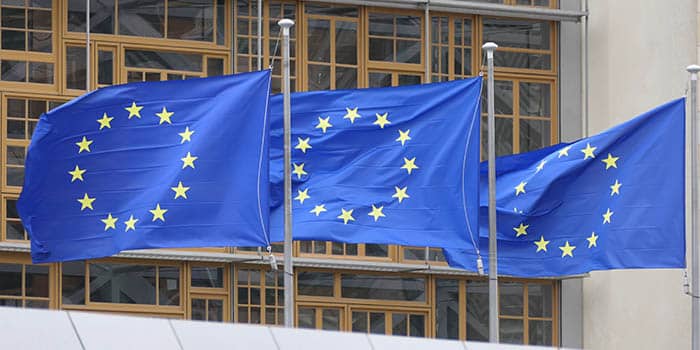
Brussels Takes Legal Action Against Malta Over Gaming Act
Brussels has recently launched infringement proceedings against Malta over Article 56A of its Gaming Act, previously known as Bill 55, which has sparked controversy in the European Union. This provision has caused significant debate as it restricts the enforcement of foreign court judgments against licensed gambling operators in Malta, raising concerns about the violation of European legal principles and the rights of EU citizens and residents.
Dispute Over Article 56A
The core of the ongoing dispute lies in Malta’s claim that only its courts have the authority to enforce judgments against licensees under the Malta Gaming Authority (MGA). Article 56A has effectively acted as a barrier preventing foreign court judgments from being implemented if they contradict Malta’s regulatory positions, particularly concerning cases where individuals attempt to recover gambling losses from Maltese operators.
Malta’s gaming model operates under a “point-of-supply” framework, allowing companies to operate across EU borders if they comply with Maltese regulations. While Malta argues that this model aligns with EU single-market freedoms, the European Commission disagrees, leading to the current legal standoff.
European Commission’s Concerns
The European Commission’s Letter of Formal Notice questions whether Article 56A violates the Brussels I (recast) Regulation, which governs civil and commercial cross-border disputes within the EU. Legal experts involved in the case assert that the provision infringes on the rights of EU citizens and disrupts legal consistency among member states.
Malta’s Defense
In response to the allegations, the MGA has clarified that Article 56A does not grant complete immunity but rather upholds existing legal principles, including the “ordre public” exception, which allows national courts to reject foreign judgments that conflict with fundamental public policies.
The Maltese government has stood firmly behind its position, emphasizing that any unjustified restrictions imposed by the provision contradict CJEU case law and hinder market access within the EU.
Future Implications
While Malta expresses its willingness to engage in constructive dialogue with the European Commission, the outcome of this legal dispute could have significant ramifications for the country’s gambling sector, which attracts operators seeking a stable regulatory environment. The next step in the process will involve a formal response from the Maltese government, with the possibility of the case escalating to the European Court of Justice.
As the legal battle unfolds, the eyes of the gambling industry and legal experts across Europe remain fixed on the outcome, as it could set a precedent for how EU member states navigate conflicts between national regulations and EU laws in the realm of online gambling.
ความขัดแย้งเกี่ยวกับมาตลา 56A
ความขัดแย้งที่กำลังเกิดขึ้นนี้มีใจความในสิ่งที่มาตลาอ้างว่าศาลของเขตแห่งเฉพาะของมาลตามีอำนาจในการปฏิบัติคำพิพากษาต่อผู้ถือใบอนุญาตภายใต้หน่วยงานการพนันของมาลตา (MGA) เท่านั้น มาตลา 56A ได้ทำหน้าที่เป็นสิ่งกีดขวางที่ป้องกันการปฏิบัติคำพิพากษาของศาลต่างประเทศไม่สามารถดำเนินการได้หากมันขัดข้อเท็จจริงของมาลตา เป็นเรื่องที่เกี่ยวข้องโดยเฉพาะกับกรณีที่บุคคลพยายามเรียกร้องค่าเสียหายจากผู้ประกอบการมาลเตส
ระบบการพนันของมาลตาใช้โครงสร้าง “จุดบริการ” ที่อนุญาตให้บริษัทดำเนินธุรกิจข้ามชาติยุโรป หากพวกเขาปฏิบัติตามข้อกำหนดของมาลตา ในขณะที่มาลตาอ้างว่าโมเดลนี้สอดคล้องกับเสรีภาพตลาดเดี่ยวของสหภาพยุโรป คณะกรรมการยุโรปไม่เห็นด้วยซึ่งเป็นสาเหตุของการขัดแย้งทางกฎหมายปัจจุบัน
ข้อกังวลของคณะกรรมการยุโรป
จดหมายแจ้งเตือนทางกฎหมายจากคณะกรรมการยุโรปถามว่ามาตลา 56A ละเมิดการระบบคำพิพากษา Brussels I (recast) Regulation ซึ่งมีอำนาจดำเนินการข้อพิพากษาธุรกิจและพานิชย์ข้ามชาติในสหภาพยุโรป นักกฎหมายที่เกี่ยวข้องกับกรณีกล่าวว่า ข้อบทบัญญัติฉบับนี้ละเมิดสิทธิของพลเมืองยุโรปและทำให้เกิดความไม่สอดคล้องในกฎหมายระหว่างรัฐสมาชิก
การต้านท่าของมาลตา
เพื่อตอบโต้ต่อข้อกล่าวหา MGA ได้ชี้แจงว่า มาตลา 56A ไม่ให้ความสิทธิสมบูรณ์แต่ยืนยันกฎหมายที่มีอยู่และรวมถึงข้อยกเว้น “ordre public” ซึ่งอนุญาตให้ศาลแห่งชาติปฏิเสธคำพิพากษาต่างประเทศที่ขัดข้อเทศน์พื้นฐาน
รัฐมาลตายืนกรานต่อตำแหน่งของตนเด็ดขาด โดยเน้นว่า ข้อจำกัดที่ไม่เหมาะสมที่ถูกนำมาโดยข้อบทฉบับนี้ล้งตรงข้อกฎคดี CJEU และขัดขวางการเข้าถึงตลาดในสหภาพยุโรป
ผลกระทบในอนาคต
ขณะที่มาลตาแสดงความพร้อมที่จะมีการสนทนาสร้างสรรค์กับคณะกรรมการยุโรป ผลที่เกิดจากการขัดข้องทางกฎหมายนี้สามารถมีผลกระทบที่สำคัญต่อการเฉลิมฉลองของประเทศในการพนันซึ่งดึงดูดผู้ประกอบการที่กำลังมองหาสภาพแวดล้อมที่มั่นคง ขั้นตอนถัดไปในกระบวนการก็จะมีการตอบโต้ทางกฎหมายจากรัฐมาลตา พร้อมกับความเป็นไปได้ของการเพิ่มขึ้นของกรณีไปสู่ศาลยุโรป
เมื่อการต่อสู้ทางกฎหมายกลายเป็นจริง สายตาของอุตสาหกรรมการพนันและนักกฎหมายทั่วยุโรปยังคงตรงไปที่ผลลัพธ์ เนื่องจากมันสามารถกำหนดเกณฑ์สำคัญสำหรับรัฐสมาชิกยุโรปวิ่งผ่านการขัดแย้งระหว่างกฎหมายของรัฐสมาชิกและกฎหมายของสหภาพยุโรปในแวดล้อมของการพนันออนไลน์



